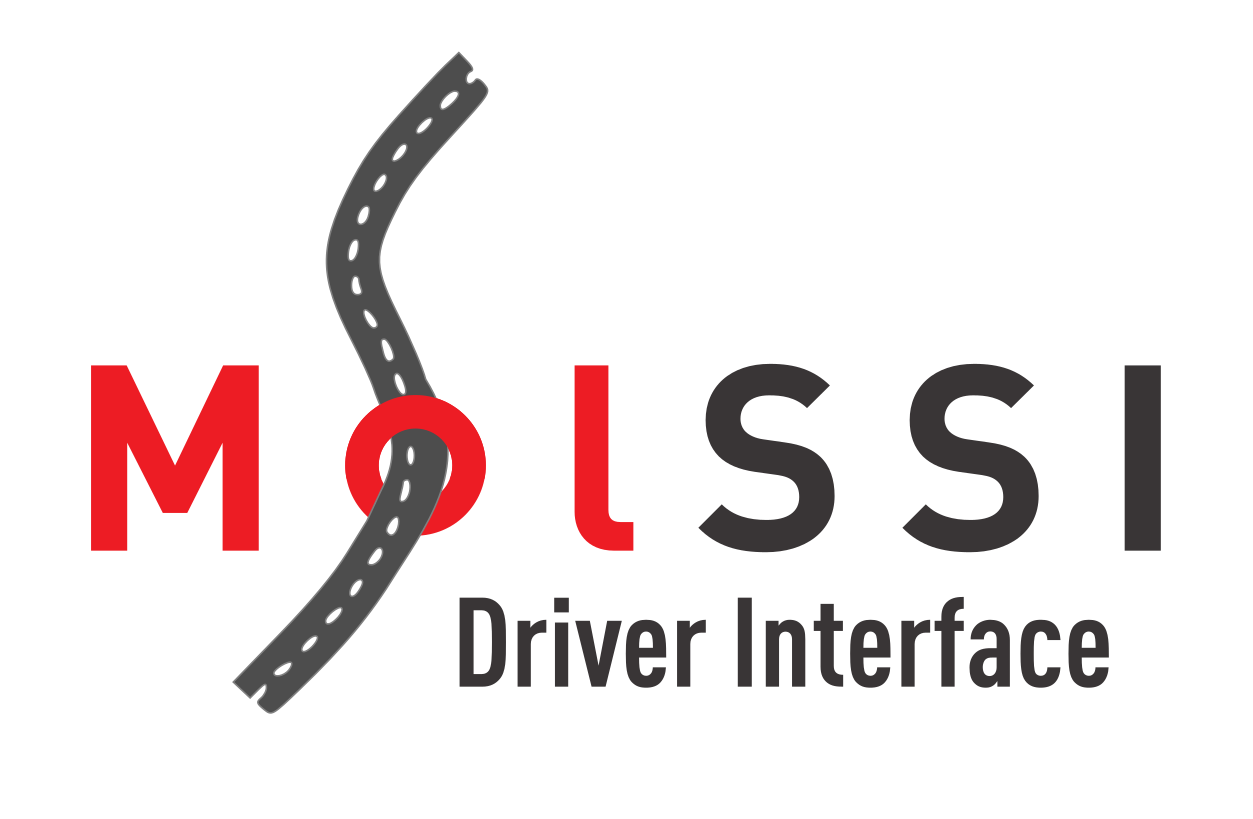User Guide#
MDI uses a driver/engine paradigm in which drivers orchestrate complex simulations by controlling engines through the use of an API-like command set that is defined by the MDI Standard. A driver will typically implement one or more high-level methods, such as advanced sampling or QM/MM, while relying on one or more engines to perform lower-level operations, such as energy and force evaluation.
In total, MDI consists of the following components:
Engines, which are codes capable of responding to commands from an external driver.
Drivers, which are codes that control the high-level program flow of one or more other codes.
The MDI Standard, which is an API-like definition of a set of commands that can be sent from a driver to an engine, and that cause the engine to respond in a clearly defined way.
The MDI Library, which is a library that enables inter-code communication in compliance with the MDI Standard.
Examples of MDI Engines are specially compiled versions of LAMMPS, Quantum ESPRESSO, Psi4, and many others. You can see a list of available engines in the MDI Ecosystem.
This User Guide is intended to provide an overview of the MDI Standard and the MDI Library. The User Guide also provides information on modes of running MDI-enabled calculations.
